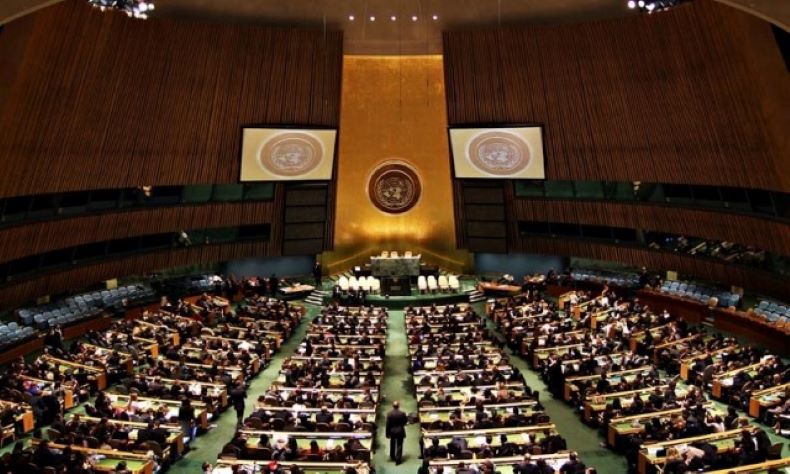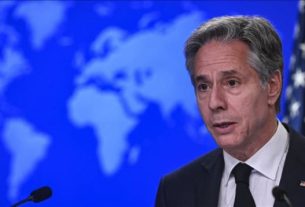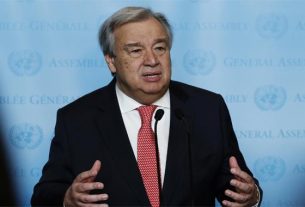UNITED NATIONS, 19 Sep – The UN General Assembly has adopted a resolution, proposed by Palestine and co-sponsored by Pakistan and several other nations, demanding Israel end “its unlawful presence in the Occupied Palestinian Territory” within 12 months. The resolution was passed with 124 votes in favour, 43 abstentions, and 14 votes against, including Israel and the United States.
This resolution precedes next week’s high-level debate, where over 130 world leaders, including Pakistan’s Prime Minister Shehbaz Sharif, are set to participate. Both Palestinian President Mahmoud Abbas and Israeli Prime Minister Benjamin Netanyahu will address the Assembly on 26 September.
The resolution endorses the International Court of Justice’s (ICJ) advisory opinion from July, which declared Israel’s occupation and settlements in Palestinian territories illegal, calling for a prompt withdrawal. While the ICJ called for immediate action, the General Assembly’s resolution imposes a 12-month deadline. It also urges states to cease importing products from Israeli settlements and halt arms transfers to Israel if there are grounds to suspect their use in the occupied territories.
This marks the first resolution formally put forward by Palestine since it gained enhanced rights at the UN, including the ability to propose draft resolutions. The vote took place during the 10th emergency special session on Israeli actions in East Jerusalem and the Occupied Palestinian Territory.
Speaking in the Assembly, Pakistan’s UN Ambassador Munir Akram stressed the importance of translating the ICJ’s opinion into action. He stated that Israel’s occupation violates fundamental principles of international law, including the right to self-determination and the prohibition of acquiring territory by force.
He described the ICJ’s opinion as “a milestone of justice, an expression of equity and a flame of hope.” The adoption of this resolution, he said, is a crucial step towards ending the suffering of the Palestinian people, declaring, “InshaaAllah, Palestine will soon be free.”
Reflecting on the “tragic history” of Palestine, Akram highlighted a series of colonial decisions, including the partition of Palestine in 1948, which led to Israel’s creation and its long-standing consequences. He condemned the prolonged occupation, including the steady acquisition of Palestinian lands and the imposition of apartheid rule.
He called for a re-evaluation of the UN’s stance, especially the Security Council’s position on Palestine. The international community must act to halt Israel’s military campaigns and ensure the withdrawal of Israeli forces from occupied territories. Nations providing military support to Israel must cease, preventing the perpetuation of the occupation.
Akram urged the admission of Palestine as a full UN member and the convening of an international conference to advance the two-state solution. Pakistan, he assured, would actively support the realisation of the ICJ’s opinion and the resolution’s objectives, striving for justice and peace in the region.





